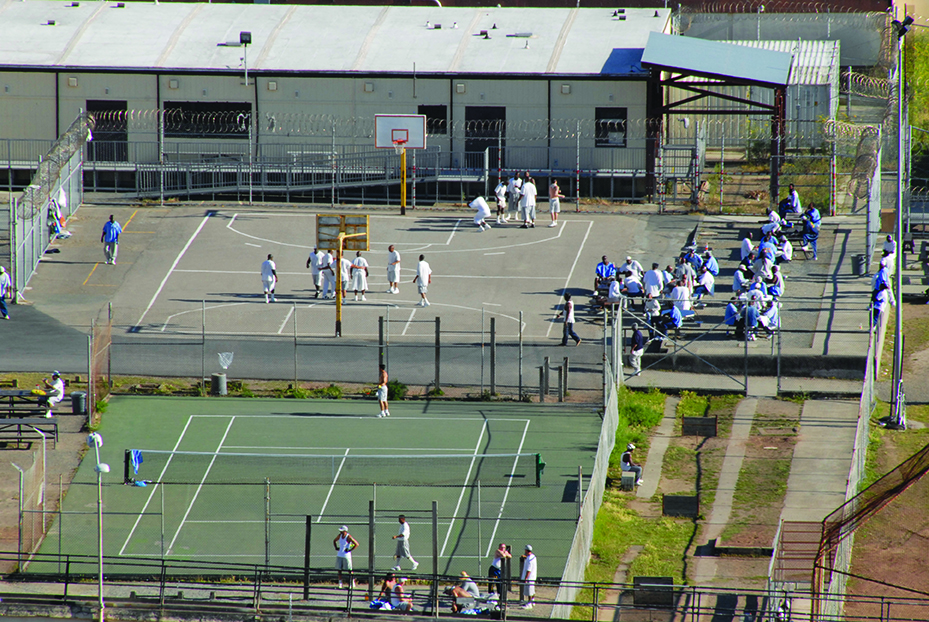Still-upheld “Convict Code” belief system facilitates segregation

For decades, incarcerated people have used prison politics and convict codes to control prison populations and promote trouble-free environments.
San Quentin residents from a variety of diverse backgrounds were interviewed about these guidelines, sharing what they meant to them on a personal level. Some residents wished to remain anonymous.
“The convict code is more universal and applicable to inmates who are not affiliated to a Security Threat Group [prison gang],” said SQ resident Tyrone “Luqman” Jones.
Having been incarcerated for more than 25 years, Jones expressed how the convict code is an ethics-based system designed to keep individuals out of trouble. He further extrapolated on how they open up greater chances to change the narratives of prison life and culture when a person can first change their mindset.
A San Quentin resident who has been incarcerated for over 40 years also reflected on how the code is essential as it requires a person to embrace education and skills like reading and writing. Through this lens of academics and by also encouraging incarcerated populations not to use racist language toward different ethnic groups, the code remains incredibly relevant and an important aspect of a safe environment.
He added that by disallowing incarcerated persons from communicating with officers, unless another resident is present to verify the statements between the two, this system continues to ensure and promote honesty and integrity.
Jemain Hunter, founder of Arms Down, a self-help group that works to promote public safety, reflected on the importance of that verification process of the code.
“A lot of negativity could come from hearsay if there is no code of ethics within a correctional facility. At the end of the day, the code is simply a blueprint to help people safely return home,” said Hunter.
Another San Quentin resident stated how the convict code should be a function of society. People should be considerate and know to not cross boundaries by giving people space and showing each other respect, he reflected.
Prison politics on the other hand are a completely different form of principles that are not collective amongst incarcerated people and the overarching prison community.
SQ resident William Harris stated that the prison populations define these principles as a way to govern the lives of the incarcerated, because “everyone benefits by preventing unnecessary violence” Harris said.
“It [ultimately] has to do with checks and balances and how the facility is going to be ran efficiently, because we are forced to live together,” he added.
To this day, because of age-old belief systems that teach and guide residents about race and politics behind prison walls, many areas throughout California’s correctional facilities continue to remain segregated.
“Yes, I believe prison politics created separation in the prison population,” said SQ resident Michael “Mikael” Walker II, who has been incarcerated for more than 20 years. “I also believe these racial dynamics were perpetuated to keep political, social, and economic agendas calm.”
Even a facility yard crew worker stated that during his upbringing, race was not only a big factor, but led to his differing experiences and current position in prison environments.
“My friends and I stuck together despite the color of our skin,” Walker said. “I have never seen so much segregation until coming to California. As far as I can see, prison politics were designed to segregate people.”
A former SQ resident, Laloifi Vaifanua, shared that as a result of prison politics he relied on hate to get him through his prison sentence. He added that it was easier for him to become numb to his emotions because violence had existed in his life for so long.
A San Quentin Hispanic resident similarly shared how prison politics and their effects have been impacts around for decades, even before he was born. He stated that people have a belief that “if you don’t look like me, I don’t trust you, and don’t want to be around you.”
According to a CDCR policy study, some incarcerated youth offenders are allowed to forgo higher security facilities with the purpose of avoiding prison politics and remnants of the convict code as a result.
An SQ resident put it eloquently: There are two different types of people in prison. The ones that have literally worked their way down from Level IV maximum security to Level II medium security. The others who have bypassed high-security facilities coming directly to level II from reception centers.
To date, as San Quentin emerges into the California Model of rehabilitation, residents as well as prison staff are making efforts toward safer prison environments. Incarcerated people have resonated with the discourse reflecting the mantra: “Do not destroy the convict code — destroy prison politics.”
—Jerry ‘Maleek’ Gearin contributed to this story